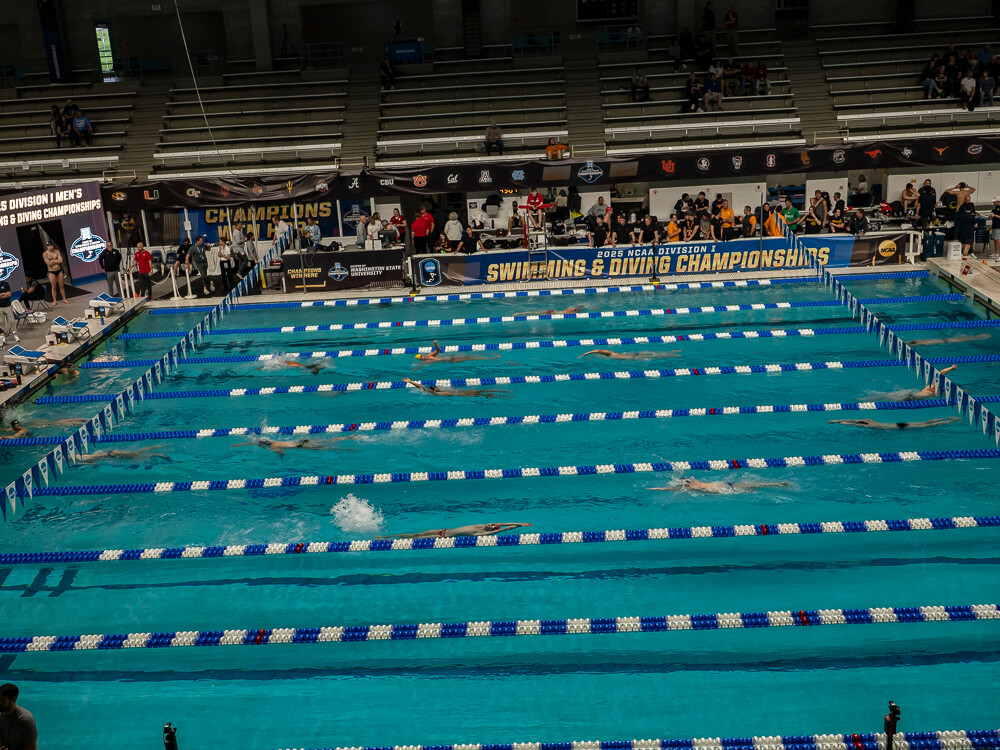NCAA Swimming to Allow Underwater Camera Use for Initiating Disqualifications
In recent years, swimming officials have regularly utilized underwater cameras at championship-level meets, allowing them to initiate disqualifications because of a technical violation invisible from those standing on the pool deck. Now, that practice is coming to college swimming following its approval from the NCAA Playing Rules Oversight Panel.
According to an announcement from the NCAA last week, underwater camera technology was previously “used to confirm violations called by an official.” The release noted that the NCAA Men’s and Women’s Swimming and Diving Rules Committee believed “that officials should use the technology, if available, with the goal of ensuring the proper application of the technical rules.”
Video review will only be utilized at championship meets and invitationals, and all participating athletes and coaches will be notified in advance that relay technology will be used. Previously, underwater video was only used to confirm or overrule calls initiated at deck level.
This rule change means that college swimmers will receive additional scrutiny for small stroke violations that might have previously gone unseen. This change has already been evident in long course competition; breaststroke events at recent years’ U.S. Nationals have included lengthy review processes between heats, and swimmers have frequently been disqualified for flaws in their underwater pullout, a minor downward dolphin motion during the stroke or a slight imbalance in the stroke.
The most memorable instance of underwater video review in action came two years ago when Emma Weyant was DQ’ed in the 400 IM prelims at 2023 Nationals, knocking her out from contention for the Worlds team. Her absence was a significant one since Weyant has won international medals in the event in 2021, 2022 and 2024.
Additionally, the NCAA committees determined that video review can be used to determine the accuracy of false starts in individual events. Cameras have been used for confirming or overturning relay false starts for several years.
The release also stated that the adopted rules for the 2025-26 season would “allow the order of consolation and championship finals to be decided by the respective championship committee.” This could be in conjunction with a well-received CSCAA proposal that would overhaul the event order of the NCAA Championships. It’s unclear if major changes to the event order will be in place for this upcoming season.
Finally, the release clarified “that changing lanes for any reason during a race, while other swimmers are still competing, will result in disqualification.” This note directly addresses a situation from the 2024 ACC Championships, when Owen Lloyd was disqualified from the 1650 freestyle after touching first. While celebrating, he fell into the lane of teammate Ross Dant, who had finished second, and that resulted in a DQ since other competitors in adjoining lanes were still racing.
Read the full release from the NCAA here.
